
Girls can shape our digital future—if only more knew it
What do we stand to lose if girls do not play a role in the UK’s digital economy?

Breaking down barriers, one after another
Georgie Lott shares her success in boosting stem engagement at her former school and what led her to IRIS.
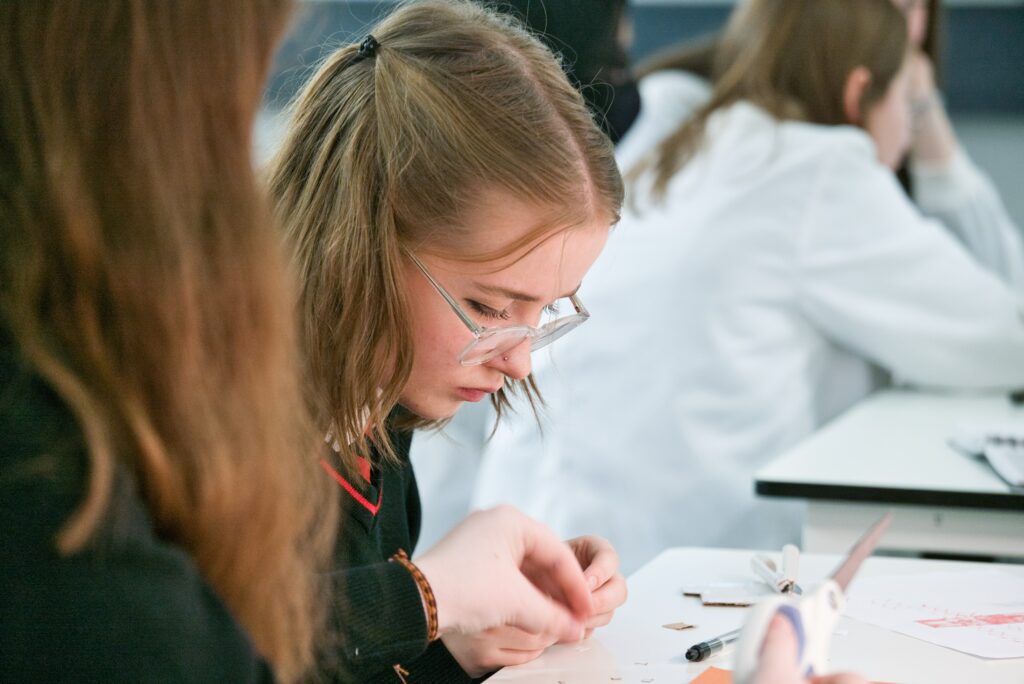
Science practicals need to push experimental boundaries
IRIS Director sees practicals as a chance to let young people freely explore answers to real-world issues.
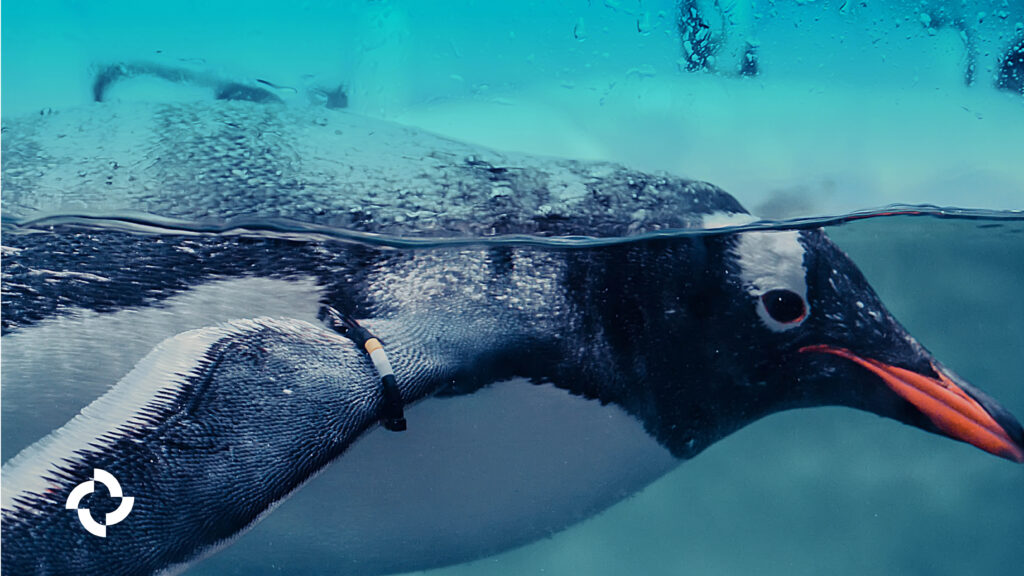
Year 10 students prompt penguin discovery
Year 10 students inspire the discovery of nearly a third of known penguin colonies.

Anyone can do science—just not me!
Students still struggle to see themselves as ‘science people’. How can we make STEM more inclusive?
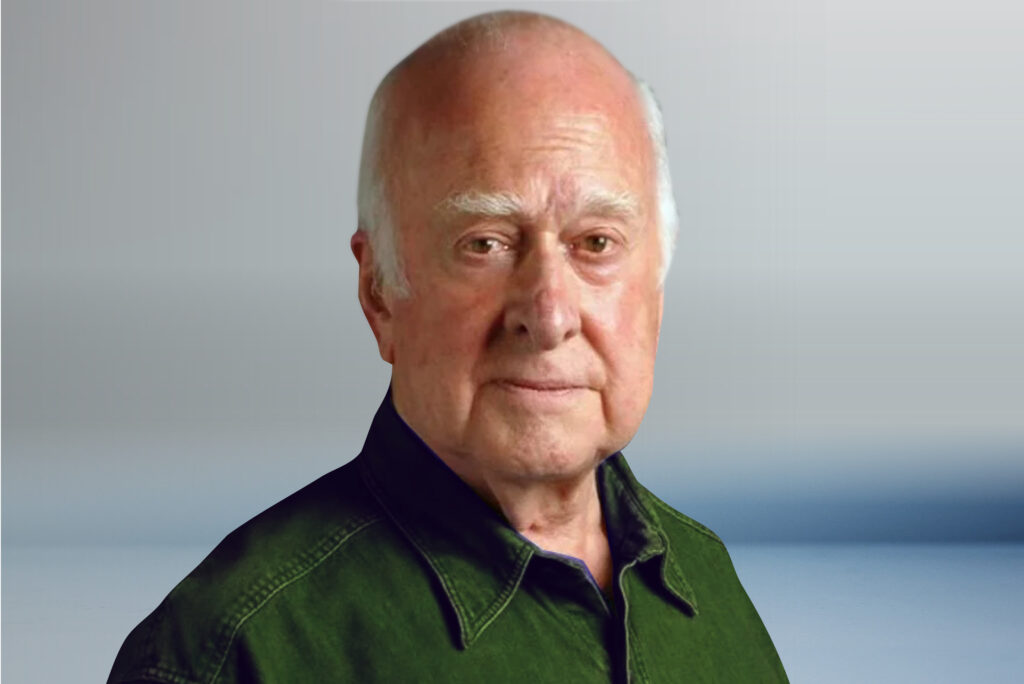
Tribute to Peter Higgs
Peter Higgs – His scientific legacy will continue to inspire curious minds.

Students on STEM lessons: important but not interesting
Over half students surveyed don’t enjoy their lessons. What is missing from their learning experience?
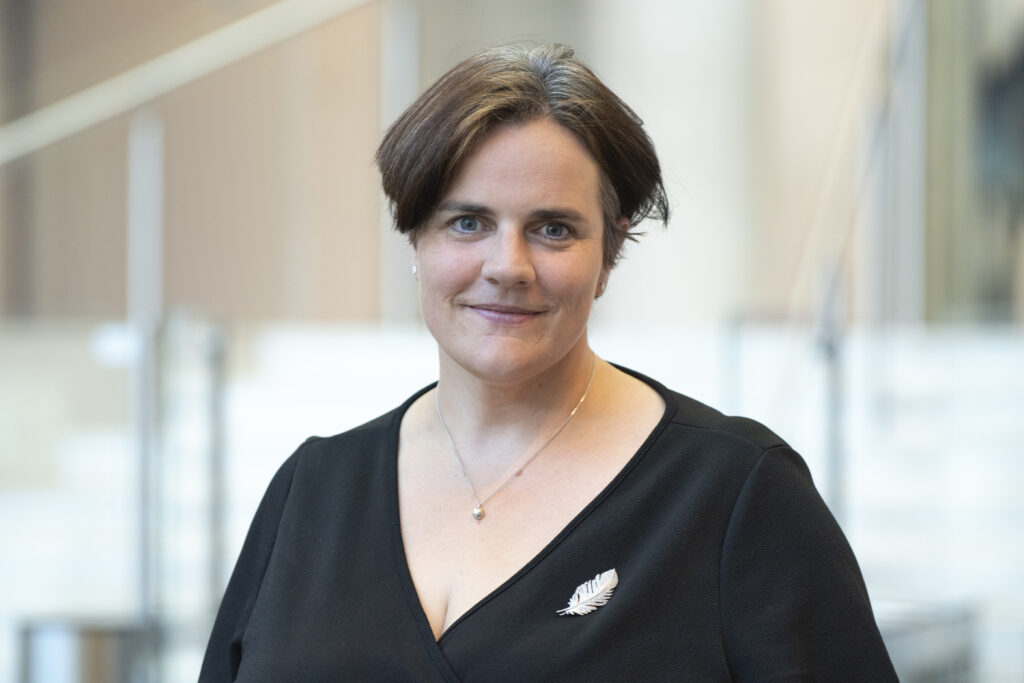
Paradigm shift needed to transform attitudes to the sciences
Our director, Jo Foster, talks about the fresh approach needed to truly change STEM education.
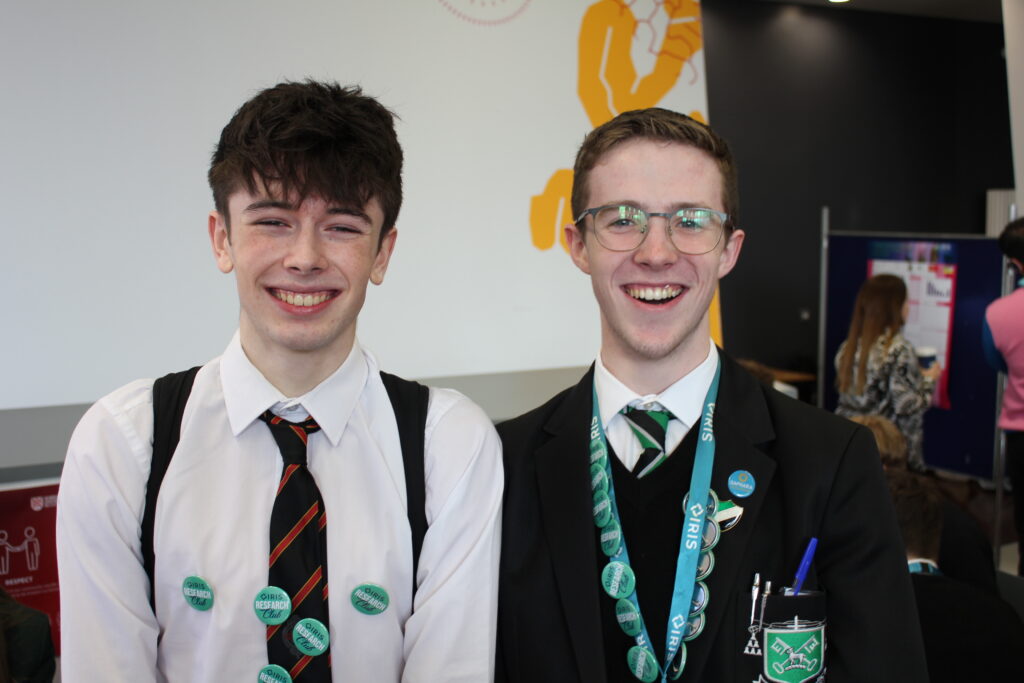
Queen’s University chemistry conference smells like teen spirit
Students share their greener fragrance research with their peers and chemists at QUB.
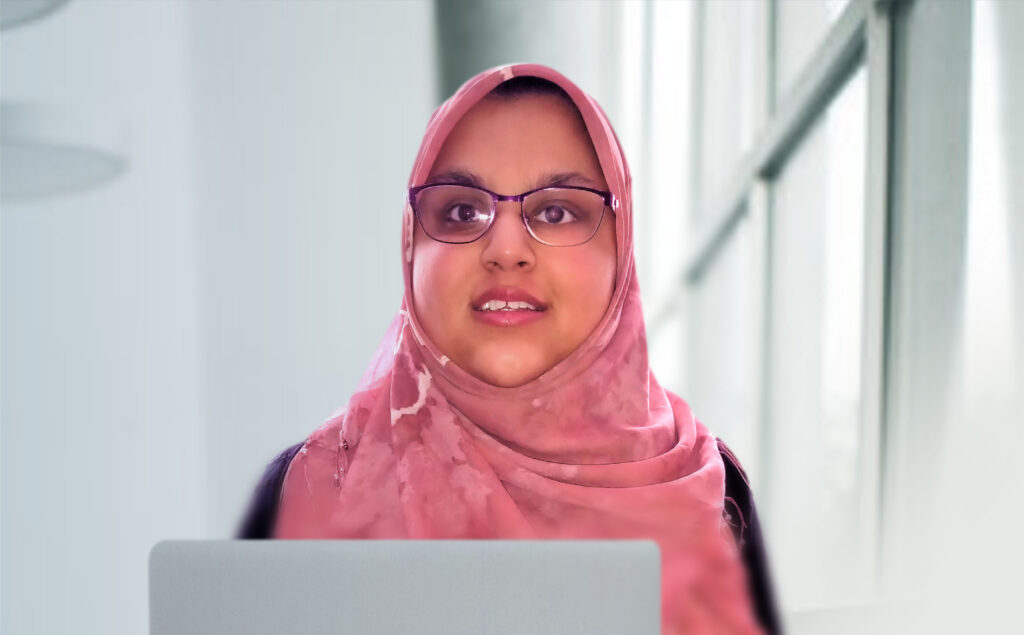
IRIS alumna becomes published author with cosmic ray research
We share Surayyah’s cosmic ray research paper, recently published in a peer-reviewed journal.
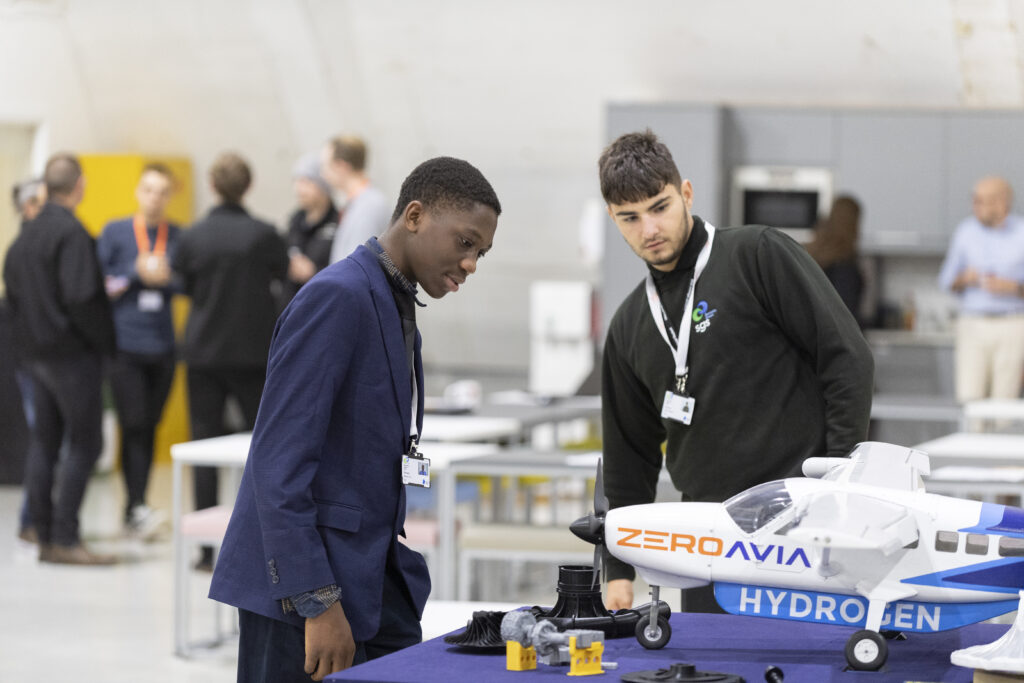
Future Flight: Pupils join scientific search for aviation climate solutions
A team of UK students work with ZeroAvia engineers to research the practicalities of hydrogen-electric flight.
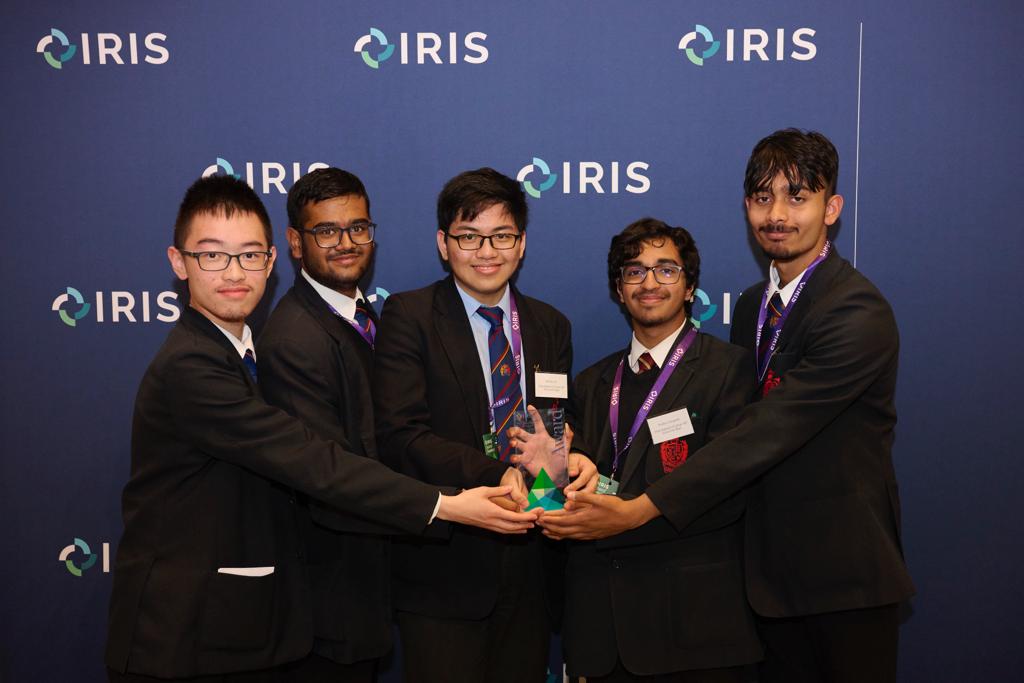
IRIS Awards 2023 – Celebrating young researchers and those that inspired them
We reveal the award winners praised last night at the Crick Institute in London.
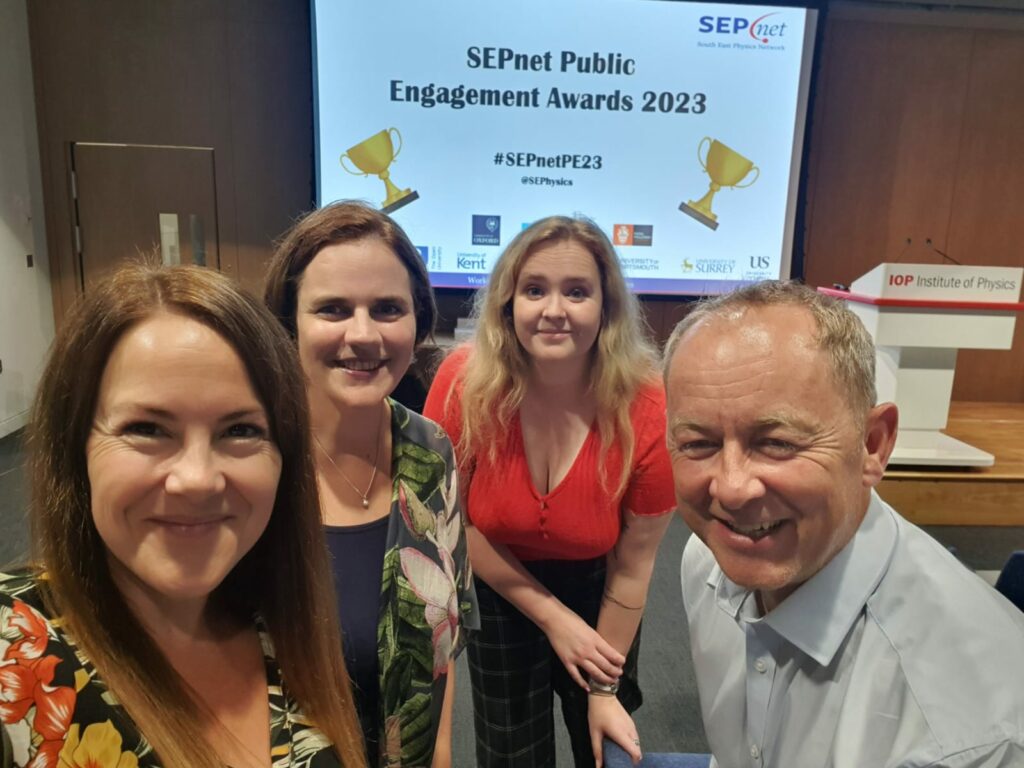
Big Data: ATLAS wins physics engagement award
Our collaboration with the University of Oxford and the Rutherford Appleton Laboratory takes the prize.
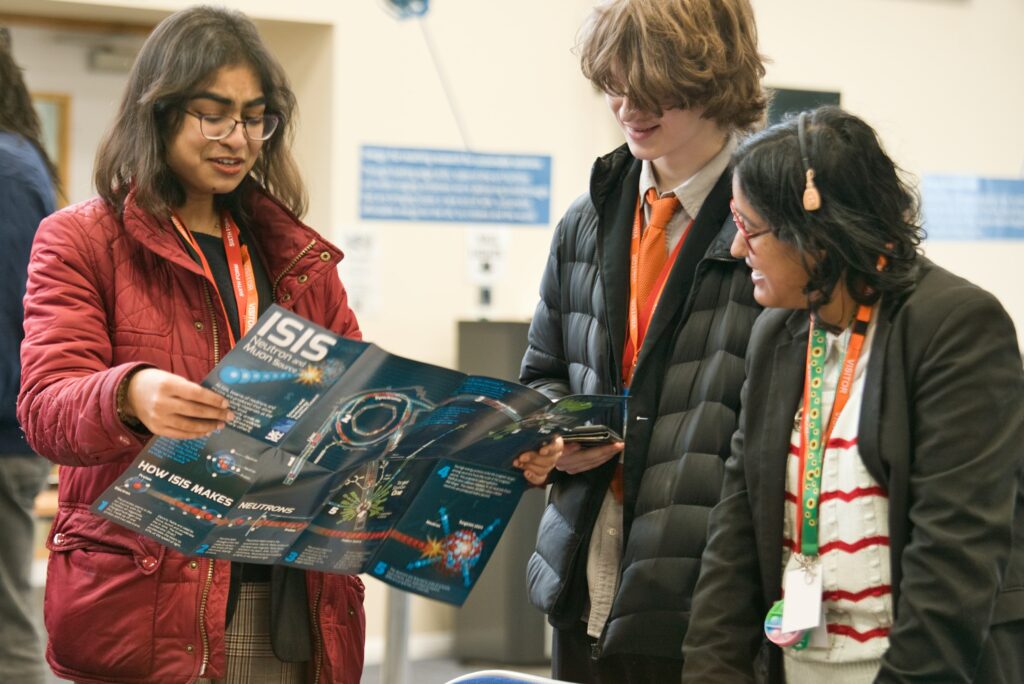
ATLAS inspires the future generation of particle physicists
World-leading particle physicists teach passionate sixth-formers about coding and more.

Women scientists encourage girls to shine bright in science lessons
Women scientists share valuable advice for girls interested in science careers.

Why we should all love apprenticeships
Jo Foster, director of IRIS, explains why apprenticeships are equally as strong as academic degrees.
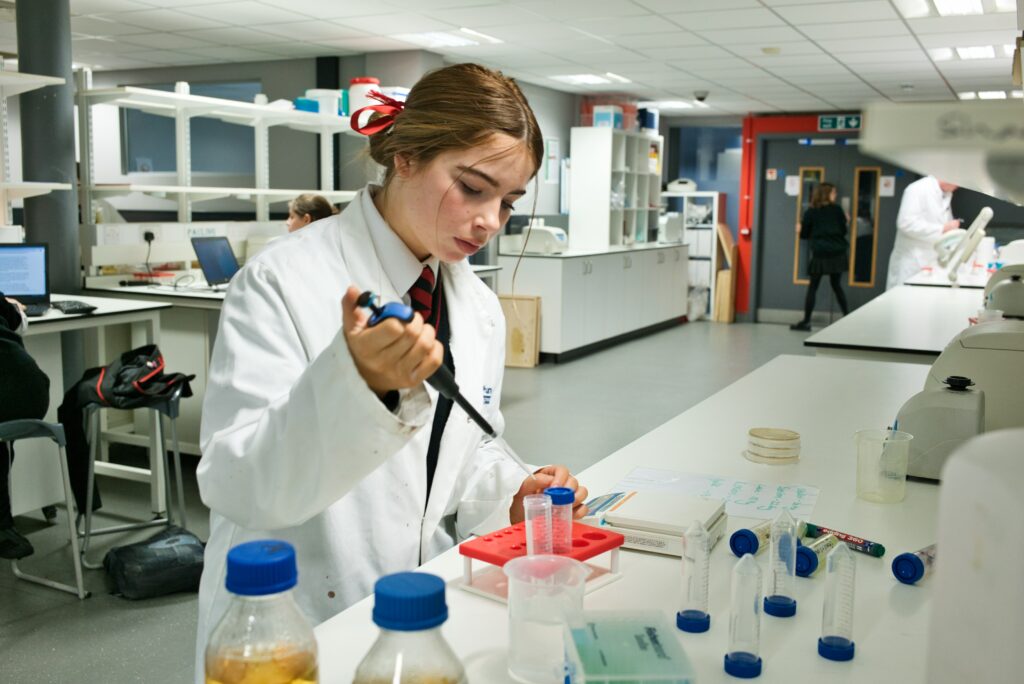
Shattering perceptions of chemistry
Northern Ireland students visit Queen’s University Belfast to kick-start greener fragrance research.
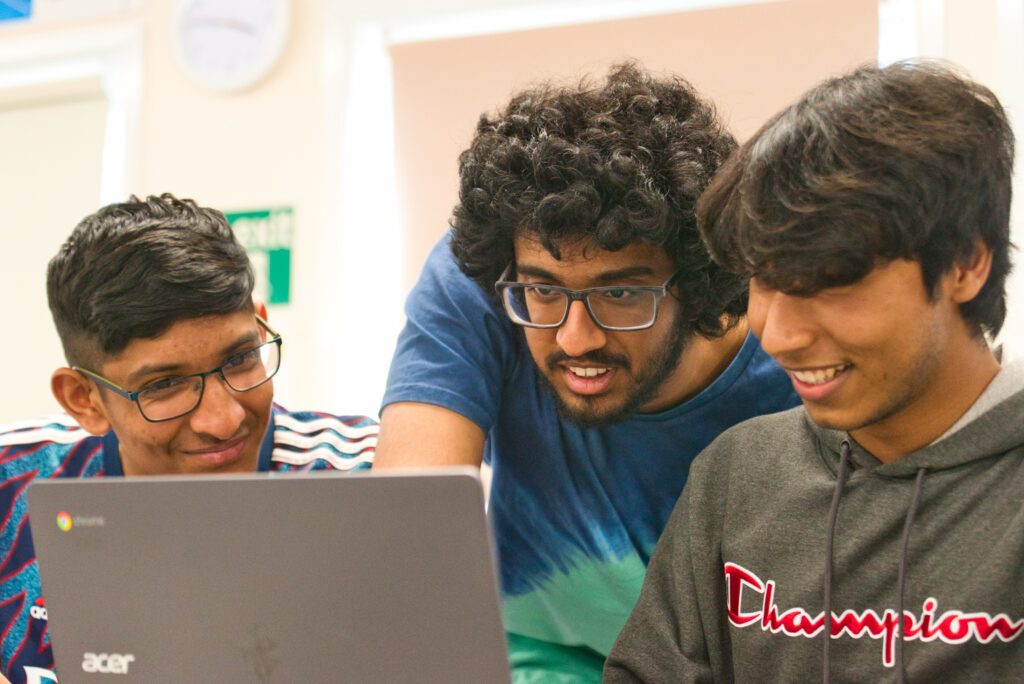
Give students the tools to achieve
IRIS director Jo Foster shares her ideas on breaking down the barriers to STEM engagement.
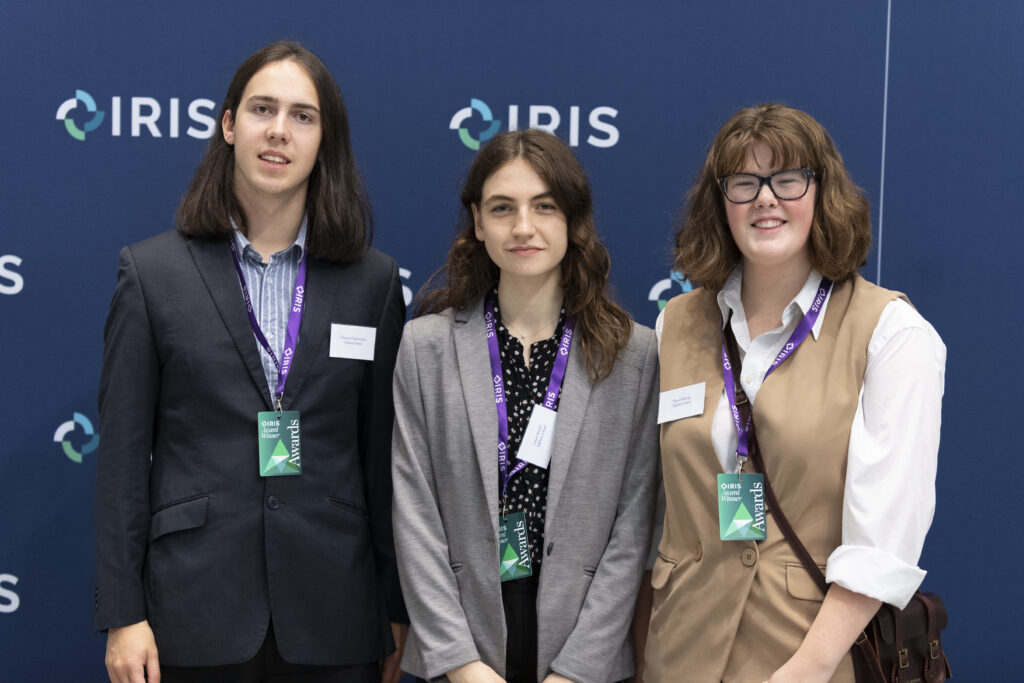
The inaugural IRIS Awards
Our very first awards ceremony to celebrate students and teachers who champion research in the classroom.
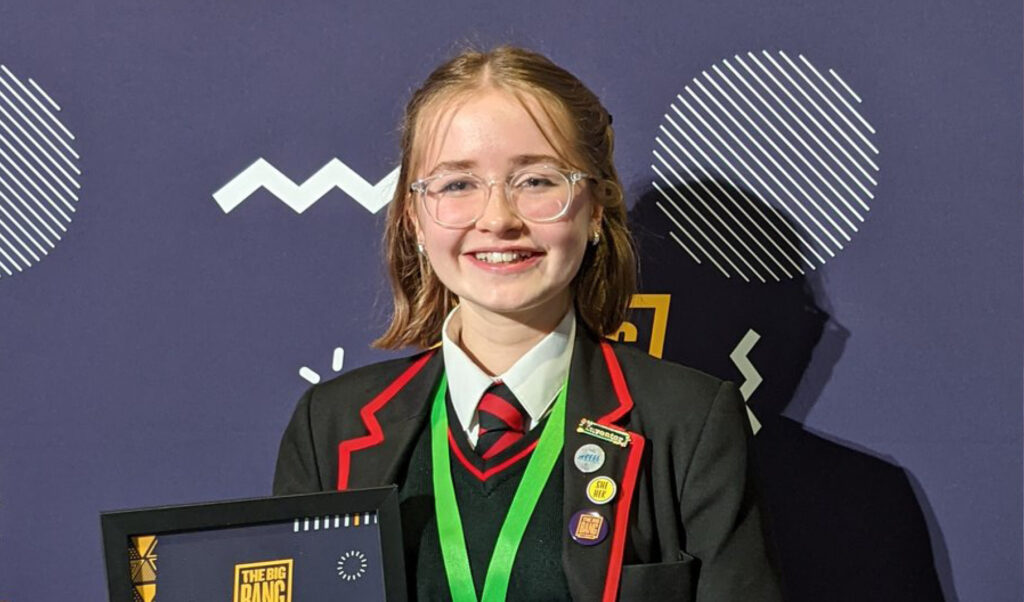
IRIS student wins Young Scientist 2022
14-year-old Connie on why some birds don’t fly and becoming Big Bang’s Young Scientist of the Year.
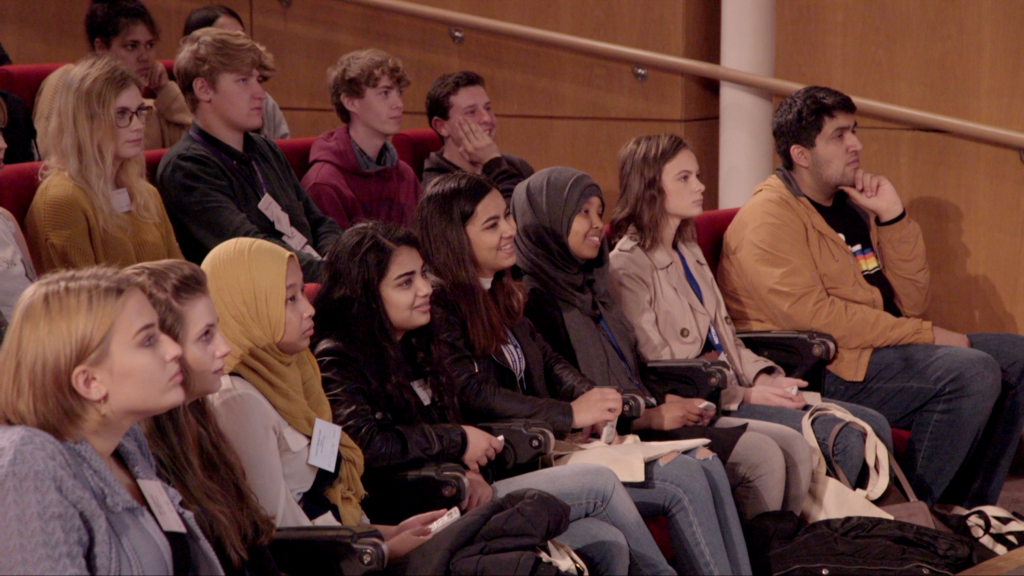
Young researchers share their findings at IRIS Student Conferences 2022
From finding evidence of the Higgs boson to showing how recent lockdowns impacted pollution in London.
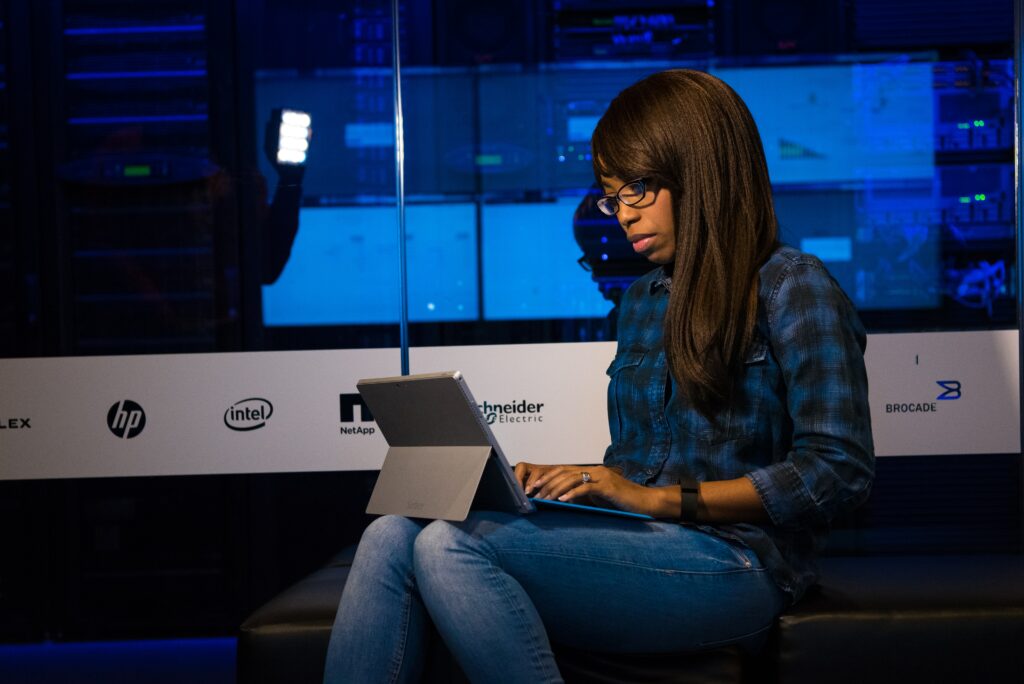
Widening STEM access is necessary and far from impossible
Ignore the social mobility tsar’s comments. There’s plenty we can do about diversity in STEM careers.
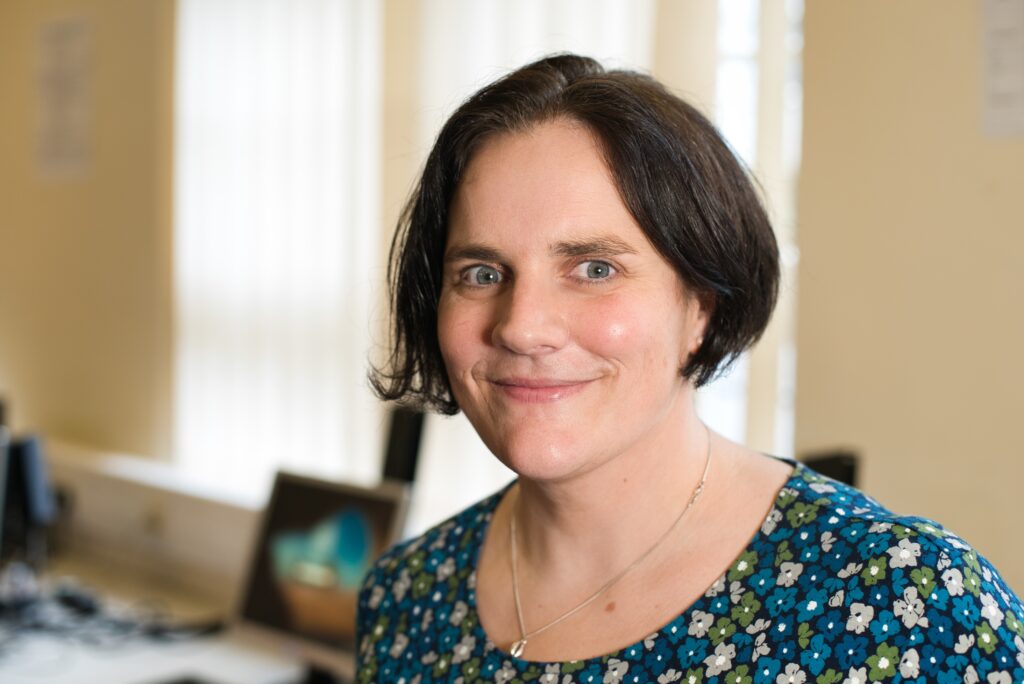
I am not ‘totally fine’ that only 16% of girls study Physics
IRIS director refutes UK Social Mobility Commissioner’s claim that hard maths puts girls off physics A-levels.
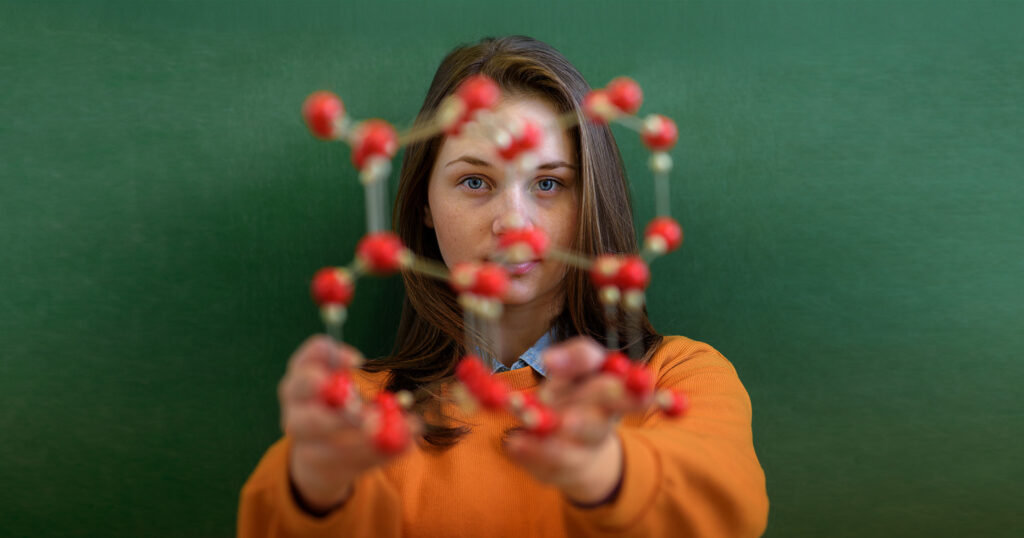
The National Research and Innovation Accelerator – our plan to open up science for young people
We share our plan to help schools embed a culture of research and innovation in their schools.

Apprenticeship reform starts with the school calendar
Want more young people to join your apprenticeship programme? Consider their schedule, says Jo.
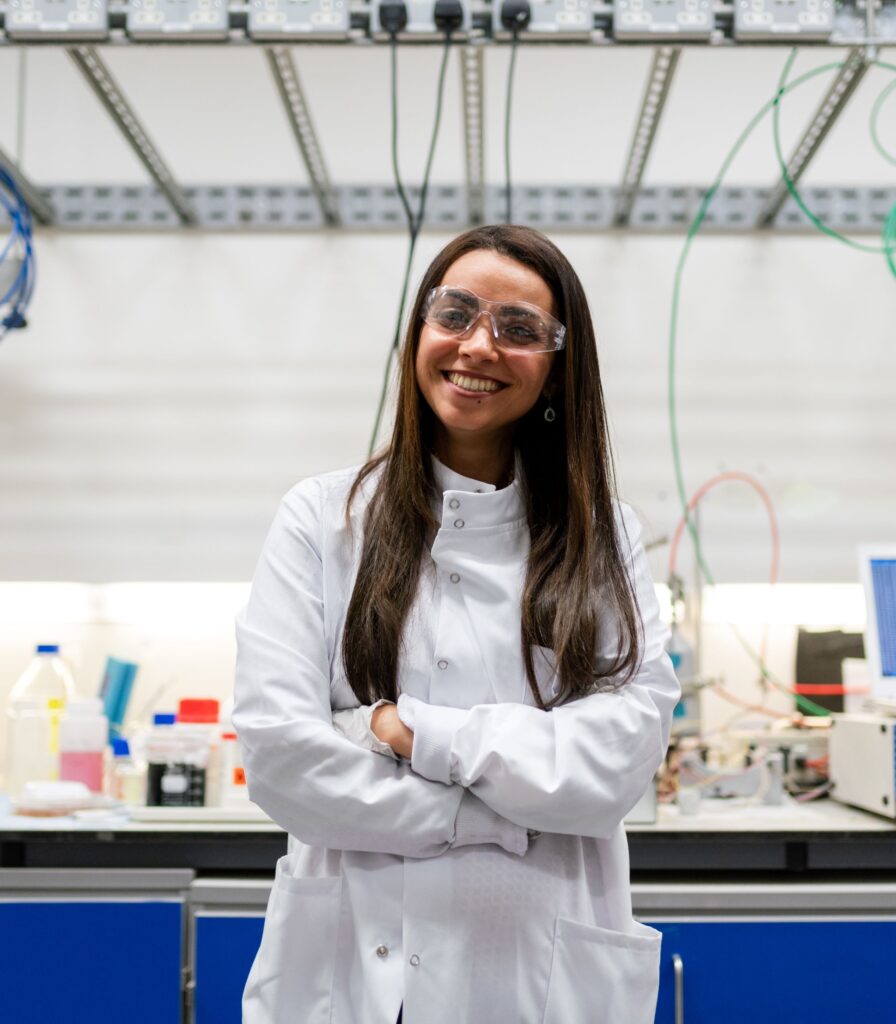
For young people to ‘get’ STEM, they must see the real-world applications
Sean O’Sullivan, a biotech professional, explains how to get more young people into STEM careers.
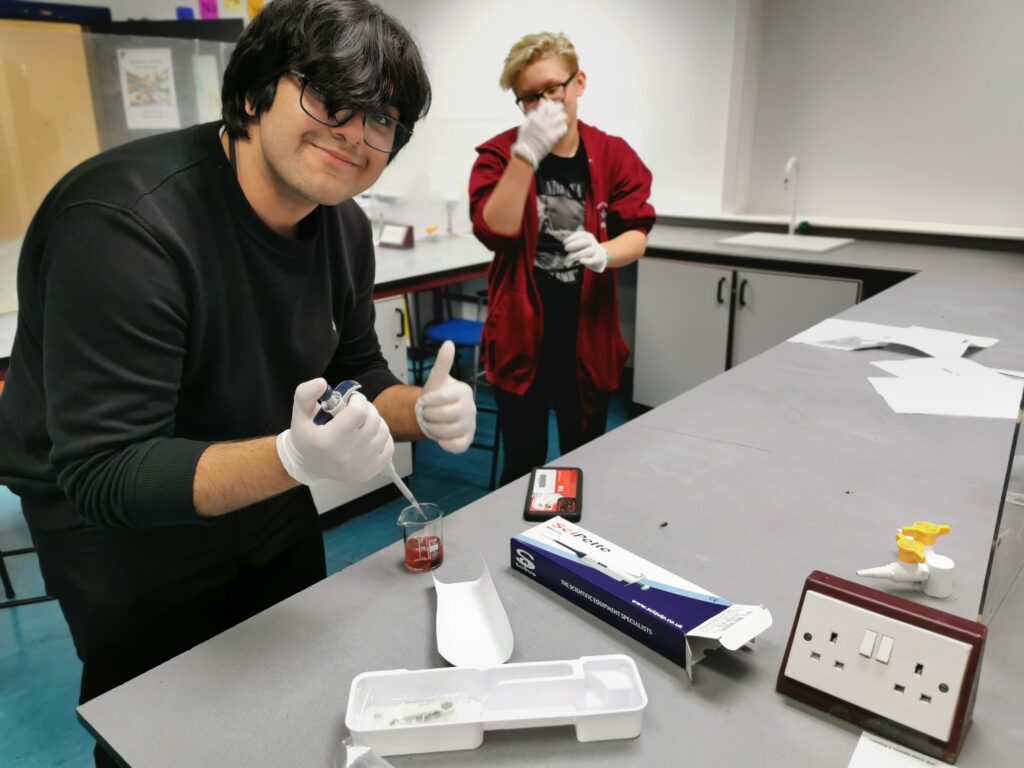
Students share DNA designs at University of Leeds
UK students visited the Bragg Centre to talk research and learn about careers in materials science.
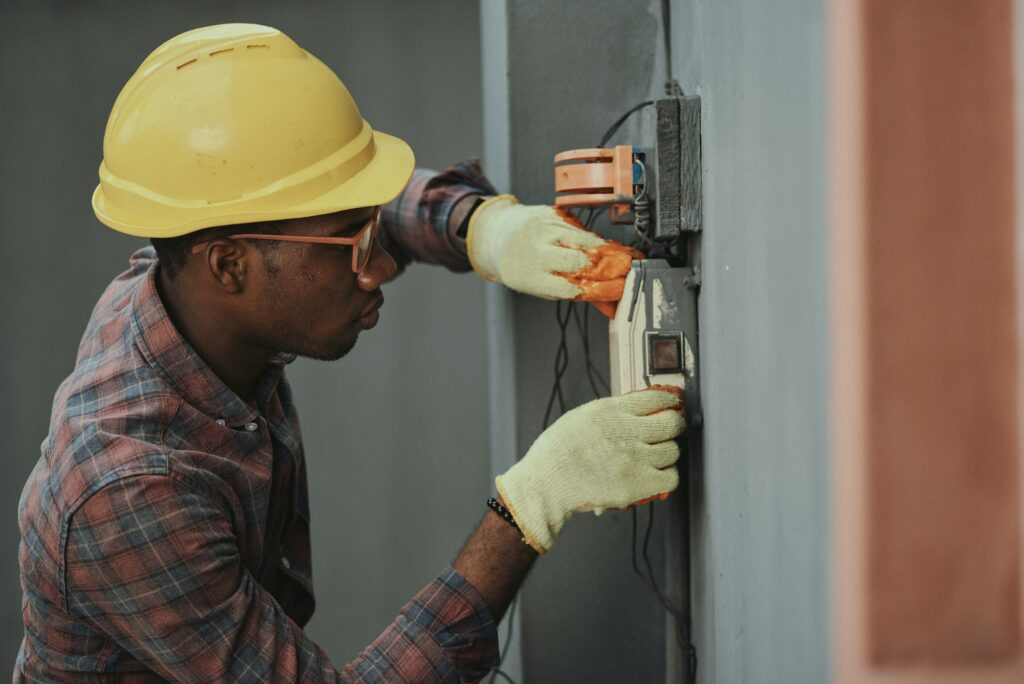
Apprenticeships will unlock our science superpower
Schools must promote apprenticeships if we are ever to become a ‘science superpower’, says Jo Foster.

Northern Ireland students join scientists on salty study
Teens work with Queens University to explore ionic liquids and how they could shape the 21st century.
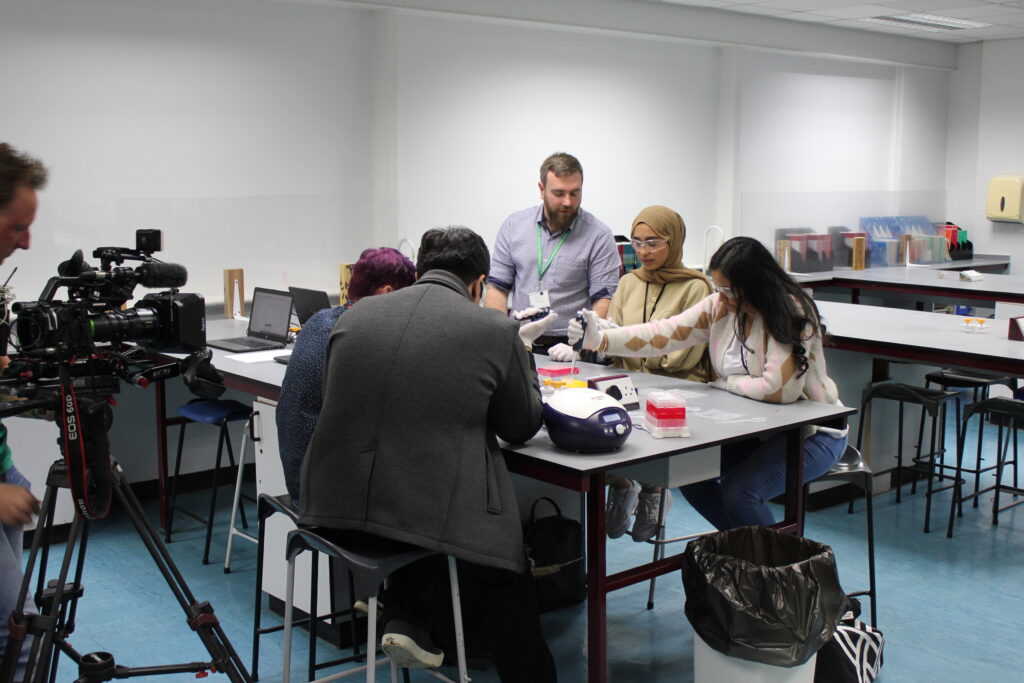
BBC Look North investigates student research in Dewsbury
Reporters visit St John Fisher to uncover young students interesting research using DNA Origami.
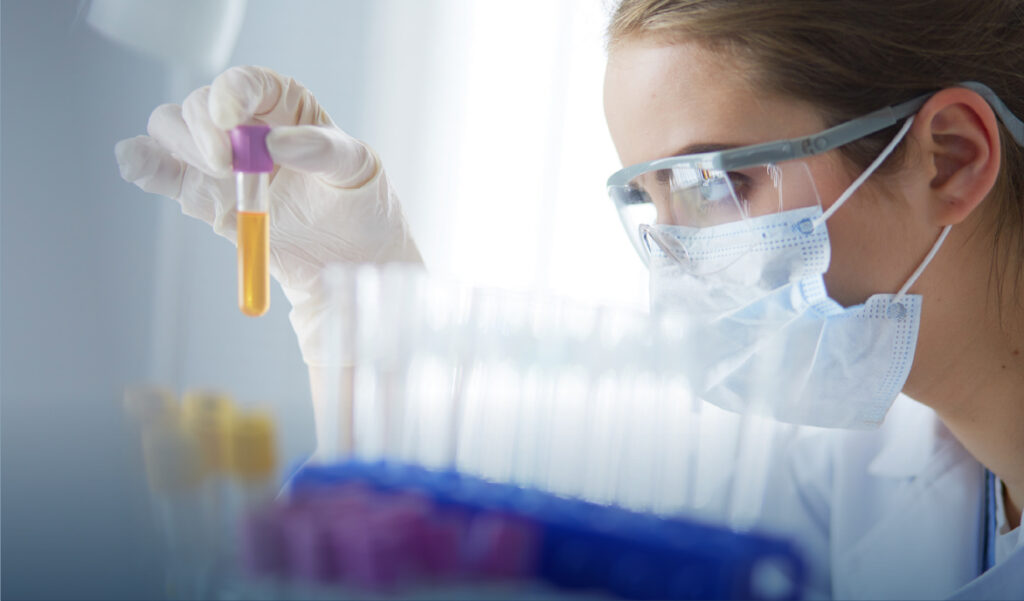
Girls in STEM: A cause for celebration, not complacency
Despite postitive GCSE and A level results, gender imbalance still exists in the sciences, Jo Foster.
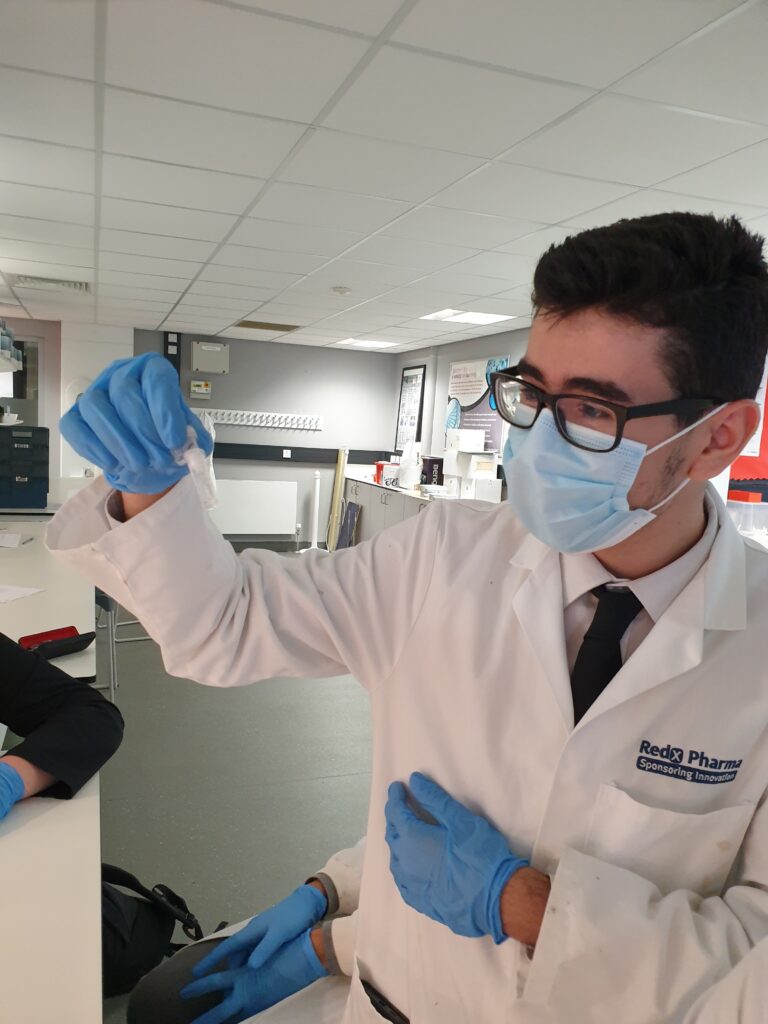
Stuff clay, let’s play with DNA
Could these be the youngest people to construct artificial structures using DNA? Our latest pilot project.
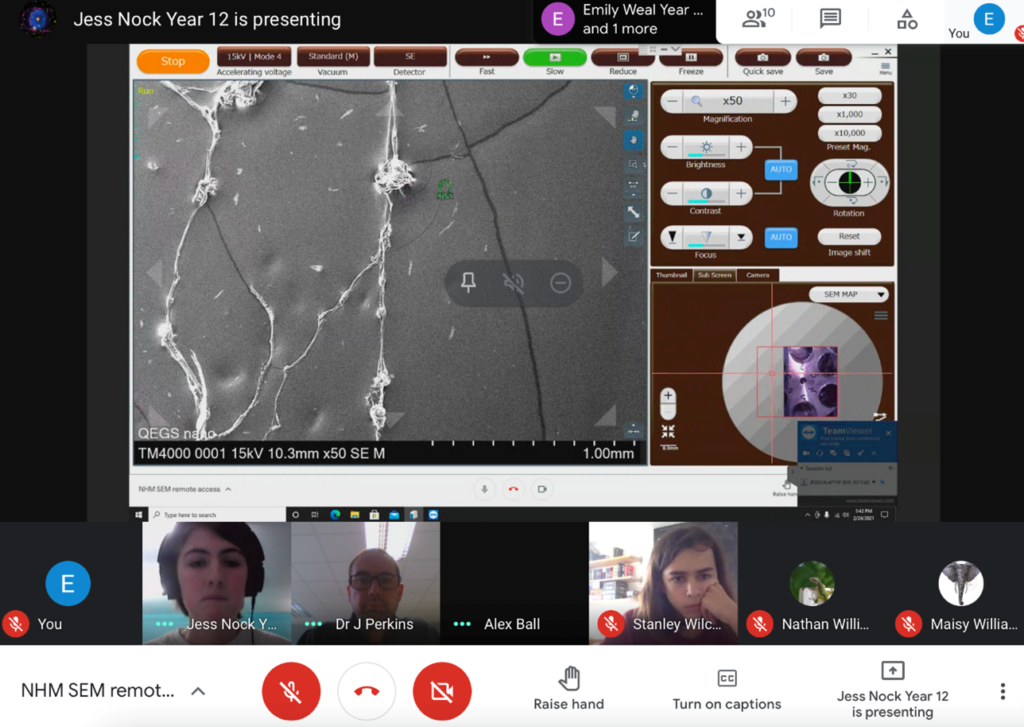
What’s under the microscope? Plastic, worms and flies.
Young people explore interesting objects using the Scanning Electron Microscope.
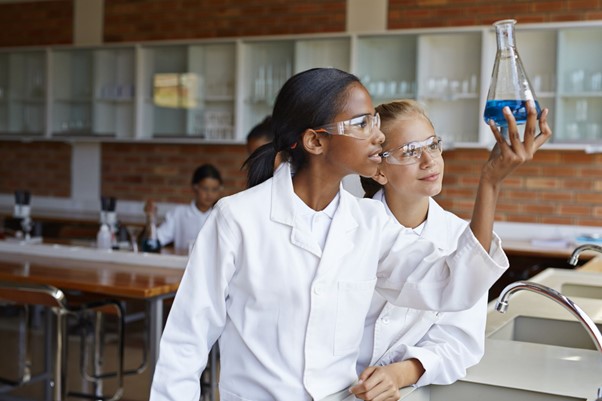
Research must be at the heart of science education
Jo Foster argues that research in schools is key if the UK wants to become a science super power.

UK students decode parasite genome to help prevent childhood infection
Students efforts could support the development of a vaccine to prevent a disease linked to malnutrition.
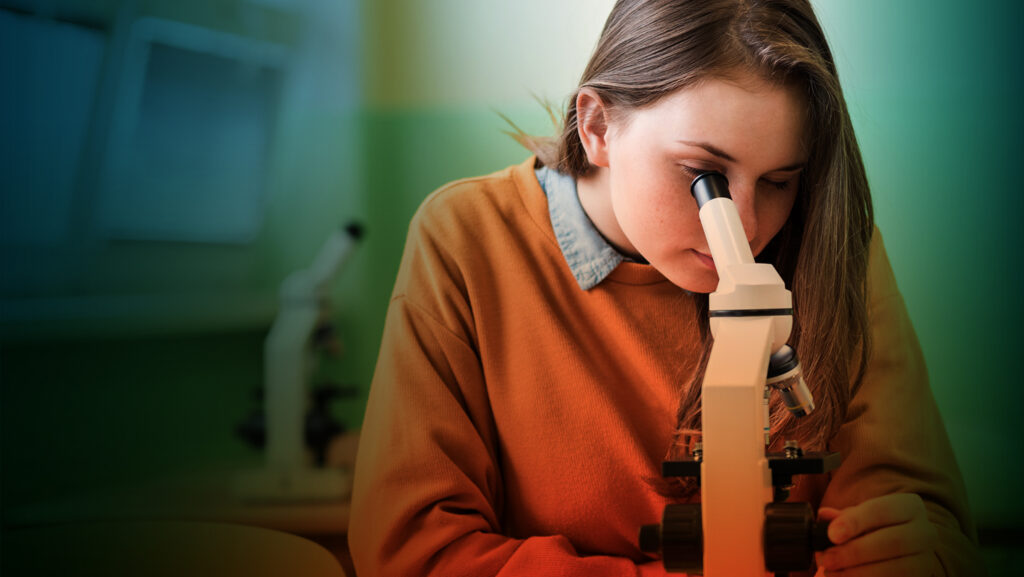
CPD to help embed student-led research in schools
Teachers can sign-up for our courses held at the National STEM Learning Centre in York
Location:
The Science Musuem
London
Document title
Lorem ipsom delore
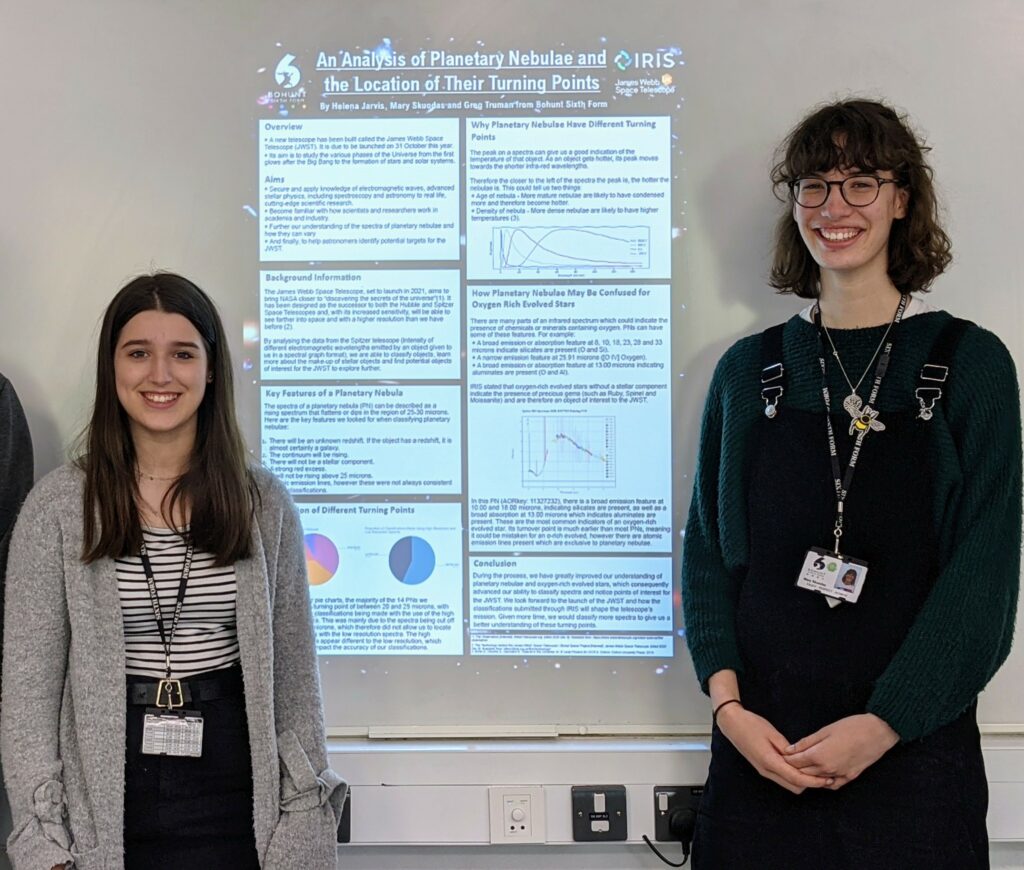
IRIS Virtual Conference: Resilience in a tough school year
The top research projects presented by secondary students at this year’s conference.

Could research reignite teachers’ passion for science?
An evaluation of 50 teachers shows how IRIS projects/student research can improve job satisfaction.
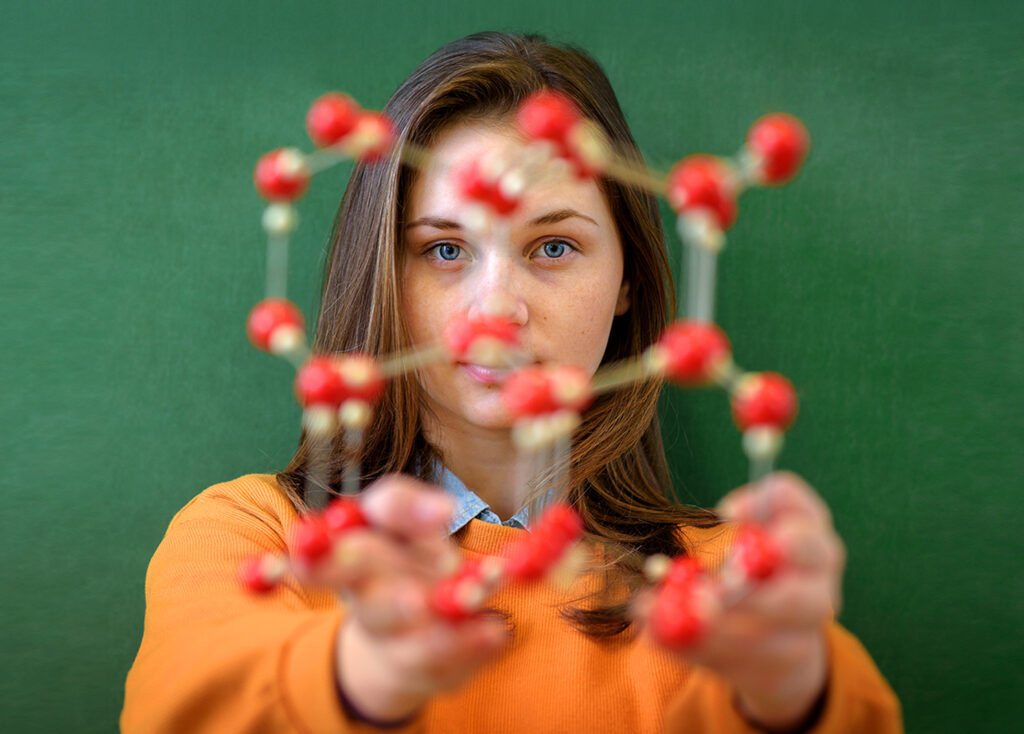
IRIS launches national STEM framework
Our framework to help leaders develop an effective whole school STEM strategy.

Where are tomorrow’s scientists?
STEM Director at Chipping Campden School on why investigative work is key to educating future scientists.
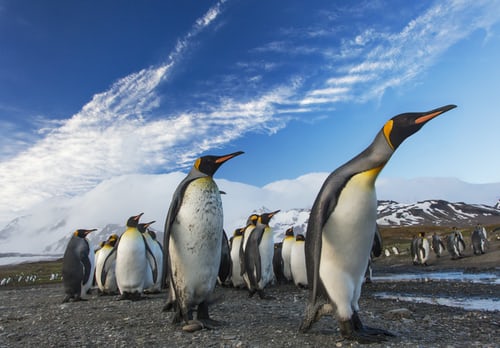
Scottish students inspire penguin discovery
The British Antarctic Survey acknowledged students in their discovery of a new penguin colony.

Education is at stake
Why it’s more important than ever to get teens involved in real research